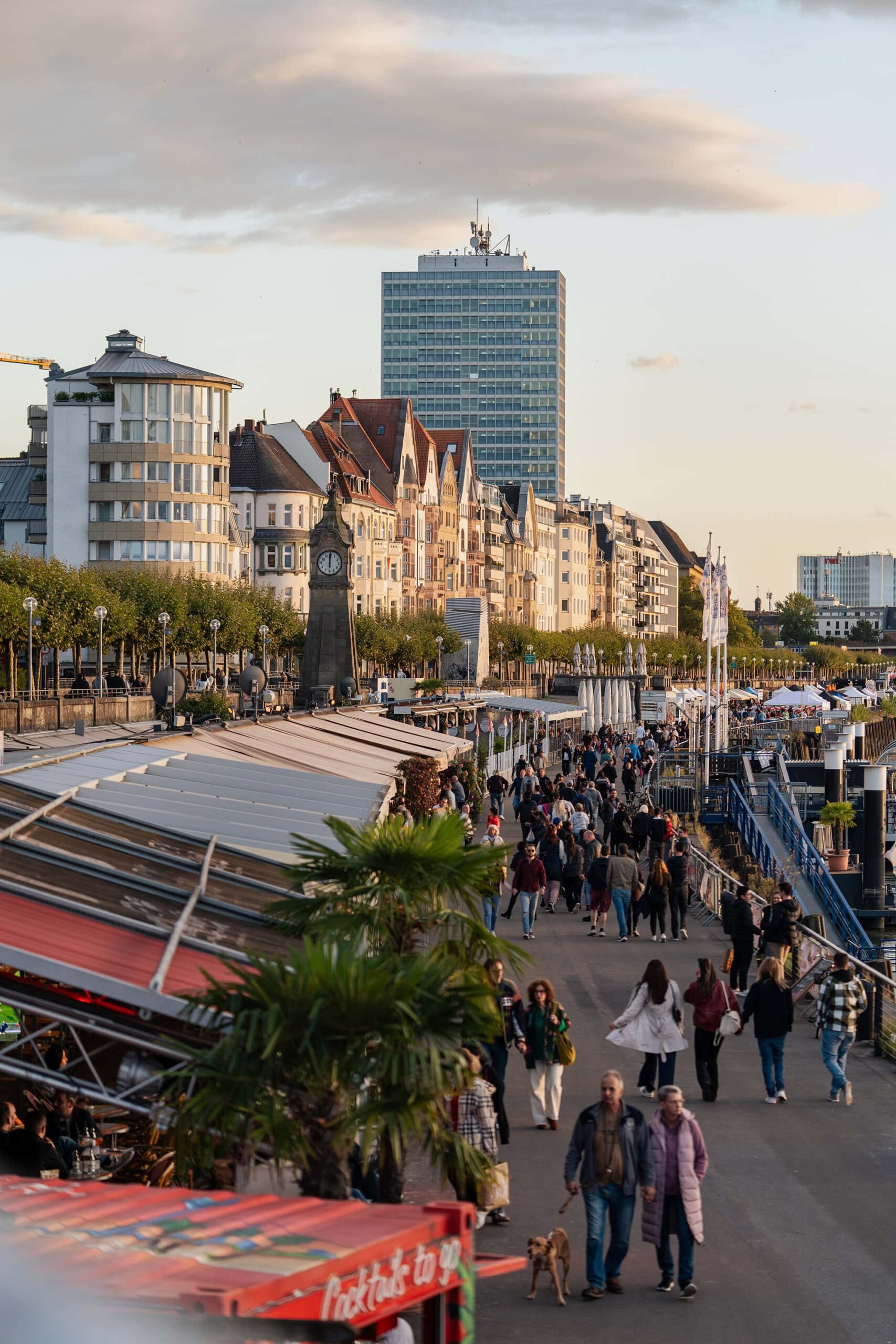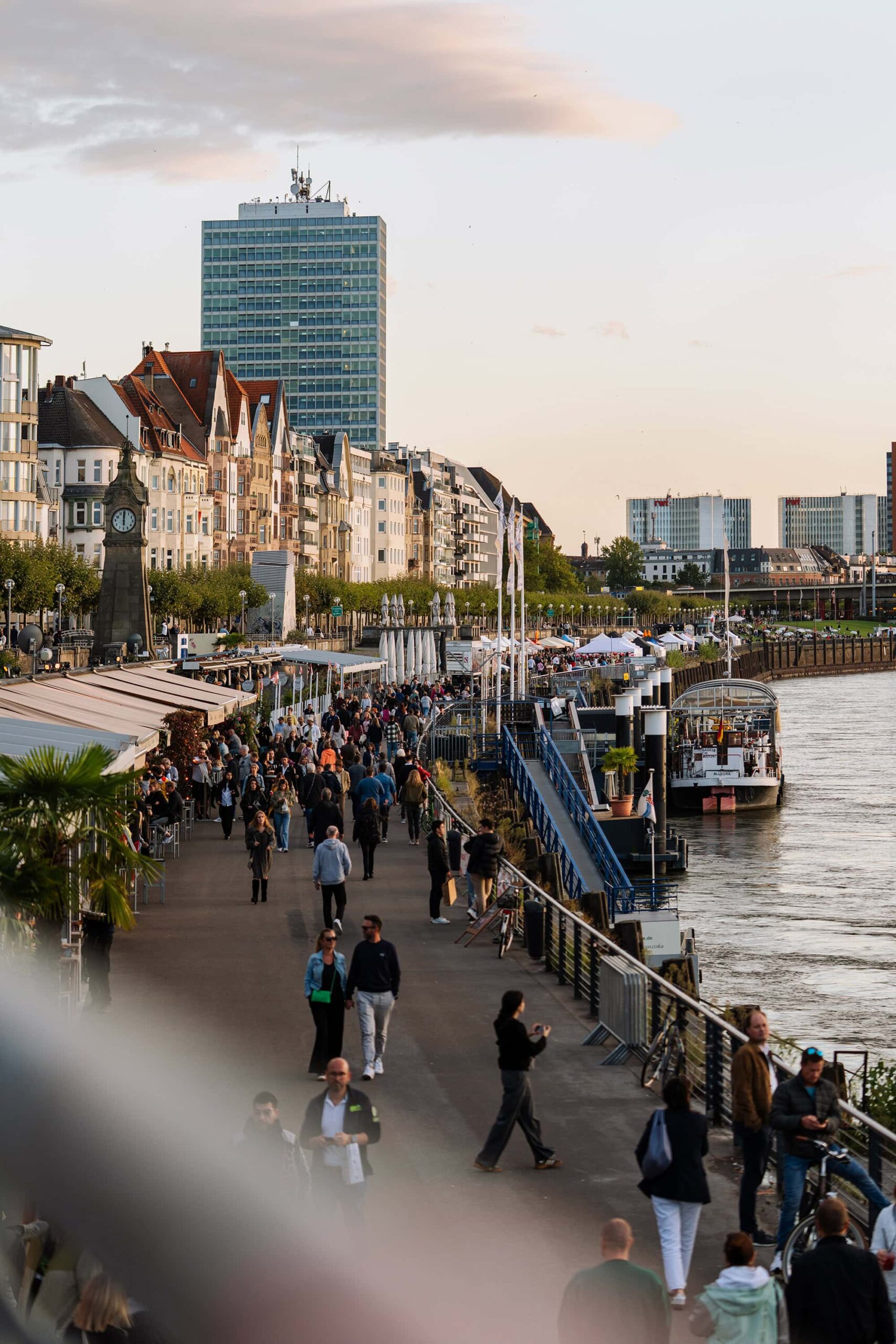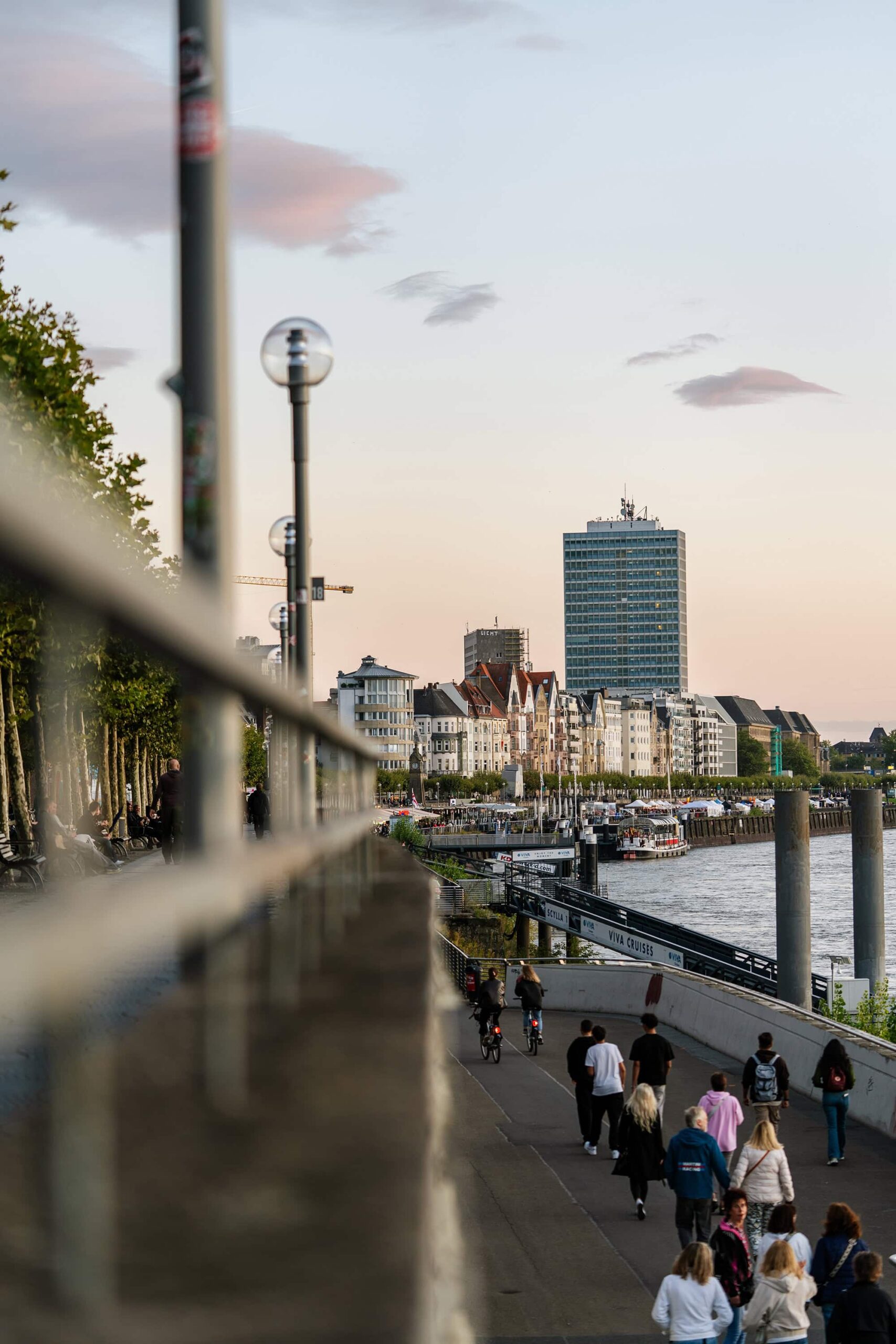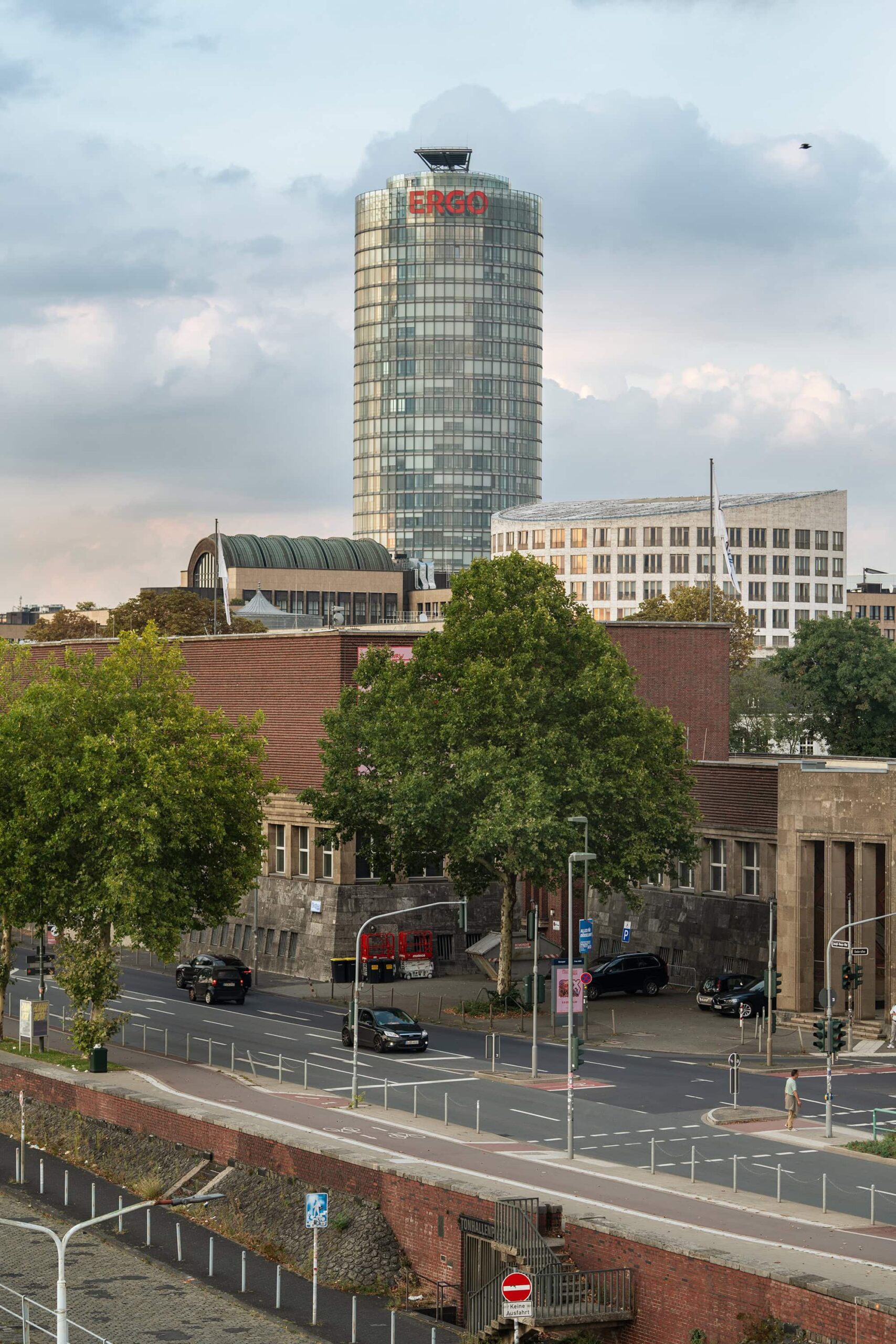Travel & Planning for New Destination Released. Free Shipping to Most Countries Around the World.
Free Shipping to Most Countries Around the World.
The evening breeze lightly stirs the ripples on the Rhine, as though tender thoughts were spreading—ring after ring—from the depths of the river toward the fading edge of the sky. The day’s clamor slowly drains from the heavens, and the light turns into a canvas of pale gold and soft violet. People still walk along the water, but their steps have lost their urgency; as if everything around us, for once, has agreed to slow down.
Designed by architect Niklaus Fritschi and completed in stages between 1990 and 1997, the Rheinuferpromenade has long since become one of Düsseldorf’s most beloved destinations—its gentle rhythm captured time and again in film and television. Stretching for about a kilometer and a half, the riverside promenade is a tender ribbon binding the old town to the flow of the Rhine. In the shadowed arches of the former fortifications lie rows of restaurants overlooking the water; on the steps and sandy banks, people linger, sit, and gather through the passing hours.
I walk slowly along the embankment, taking in the ease of those around me. Farther ahead, benches stand quietly at the river’s edge, letting the sunset wash them in a soft, amber glow. Some couples sit close, their murmurs tucked into the wind; others lean more boldly into each other’s warmth; a few simply stand alone, savoring a moment of solitude.
Here the promenade unfolds on two levels. Below, crowded stalls spill over with laughter and conversation. Everyone holds a glass—wine, beer, a simple drink in hand—and chats freely with friends. It reminds me a little of Britain: after work, all one really needs is a drink and good company. As night falls, performances spring to life; you soon understand why this city calls itself a musical capital. Step into almost any bar and you’ll find jazz in full bloom—cellos, violins, flutes, clarinets, saxophones, guitars—there seems to be no instrument the Germans haven’t mastered.
Owing to its northern latitude, the sun doesn’t set here until after eight. Around that time the sky deepens: pink clouds turn indigo, and in the blink of an eye the riverside lights—weathered by years yet gentle as ever—come to life, one by one, like fine stars strung along the world’s branches. Reflected in the water, they scatter into shimmering fragments, mingling with the silhouettes of people who, in the soft wind, seem to proclaim their freedom and joy with unguarded fervor.
Dusk here is never hurried. It carries with it a quiet sense of healing. It ushers away the fever of daytime and leaves the heart a little clearer, a little calmer. Standing by the Rhine, I suddenly understand: reconciliation—with the world, with oneself—does not always come through thunder or ecstasy. It often resides, silently and tenderly, in such small and tranquil moments as this.








We use cookies to optimize your experience, analyze usage, and personalize content. Your continued browsing indicates consent to our cookie usage and the sharing of site interaction data with our marketing and analytics partners.